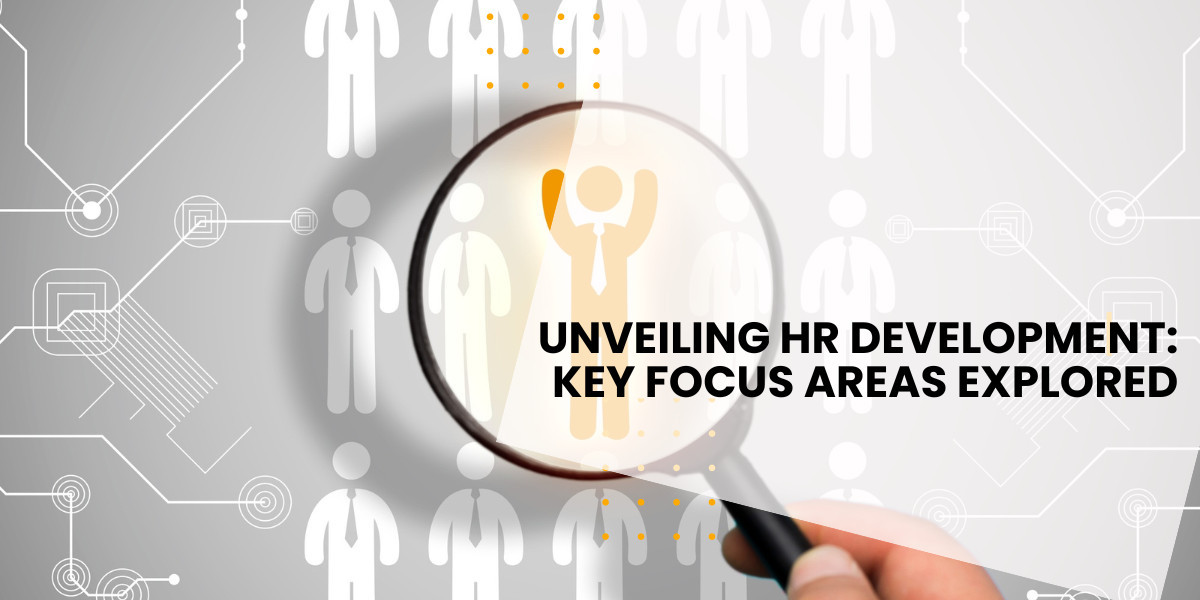Human Resource (HR) departments play a pivotal role in shaping the success and culture of any organization. As businesses evolve, so do the challenges faced by HR professionals. To navigate the ever-changing landscape, HR leaders must focus on key areas that drive organizational growth, talent management, and employee satisfaction. In this article, we will delve into three crucial areas of human resources, shedding light on key development and focus areas.
Strategic Workforce Planning: Building the Foundation
Strategic workforce planning is the bedrock upon which successful organizations stand. It involves aligning human resources with the overall business strategy to ensure that the right talent is in place to meet current and future needs. In this era of rapid technological advancements and market shifts, HR departments must take a proactive approach to workforce planning.
Key Focus Areas:
Talent Acquisition Strategies:
Implementing effective talent acquisition strategies is paramount for attracting, hiring, and retaining top talent. HR professionals should leverage data analytics and market trends to identify the skills and competencies required for future roles. Embracing innovative recruitment methods, such as artificial intelligence-driven tools, can streamline the hiring process and enhance candidate experience.
Succession Planning:
Succession planning is essential for mitigating talent gaps that may arise due to retirements, promotions, or unexpected departures. HR departments should identify high-potential employees, provide targeted development opportunities, and create a talent pipeline to ensure a smooth transition in key positions. This strategic approach minimizes disruptions and fosters continuity within the organization.
Skill Development and Training Programs:
Investing in employee development is a win-win strategy. HR leaders should collaborate with business units to identify skill gaps and design training programs that enhance employee capabilities. This not only boosts individual performance but also contributes to the overall organizational agility required in today's competitive landscape.
Employee Engagement and Well-being: Nurturing a Positive Workplace Culture
A thriving organizational culture is built on engaged and satisfied employees. HR departments play a pivotal role in fostering an environment where employees feel valued, motivated, and supported in their personal and professional growth.
Key Development Areas:
Employee Feedback Mechanisms:
Creating open channels for feedback is crucial for understanding employee sentiments and concerns. HR professionals should implement regular surveys, one-on-one discussions, and anonymous feedback mechanisms to gauge the pulse of the workforce. Analyzing this feedback enables HR teams to identify areas for improvement and tailor initiatives to address specific needs.
Work-Life Balance Initiatives:
Recognizing the importance of work-life balance is essential for employee well-being. HR departments should champion initiatives that promote flexibility, remote work options, and mental health support. Implementing policies that prioritize work-life balance contributes to higher job satisfaction, increased productivity, and a positive organizational culture.
Diversity, Equity, and Inclusion (DEI) Programs:
Creating a diverse and inclusive workplace is a continuous journey. HR leaders should actively promote diversity and inclusion through targeted programs and policies. This involves fostering a culture of belonging, providing equal opportunities for all employees, and addressing unconscious biases. DEI initiatives not only enhance employee satisfaction but also contribute to innovation and better decision-making.
Technology Integration: Enhancing HR Efficiency
In the digital age, leveraging technology is imperative for HR departments to streamline processes, enhance efficiency, and deliver a seamless employee experience. Embracing the right technological tools can revolutionize HR functions and elevate the overall organizational performance.
Key Focus Areas:
Human Resource Information System (HRIS):
Implementing a robust HRIS is a game-changer for HR professionals. This technology centralizes employee data, automates administrative tasks, and provides real-time insights for informed decision-making. HR departments should invest in user-friendly HRIS platforms that align with the organization's unique needs and scalability.
Artificial Intelligence in HR:
The integration of artificial intelligence (AI) in HR processes is on the rise. AI can assist in recruitment, employee onboarding, performance management, and predictive analytics. HR leaders should explore AI-driven tools to enhance efficiency, reduce bias, and make data-driven decisions that contribute to strategic workforce planning.
Employee Self-Service Portals:
Empowering employees with self-service options through online portals enhances the overall employee experience. HR departments should invest in user-friendly portals that allow employees to access information, submit requests, and manage their own HR-related tasks. This not only reduces administrative burdens but also promotes a culture of transparency and empowerment.
Conclusion
In the dynamic landscape of human resources, staying ahead requires a strategic and holistic approach. HR professionals must continually evolve and adapt to the changing needs of the organization and its workforce. By focusing on strategic workforce planning, employee engagement and well-being, and technology integration, HR departments can pave the way for organizational success and growth. As the key development areas unfold, organizations will find themselves better equipped to navigate challenges and capitalize on opportunities in the ever-evolving business landscape.
